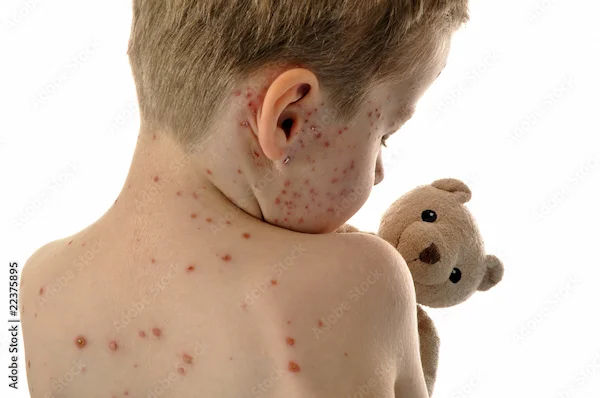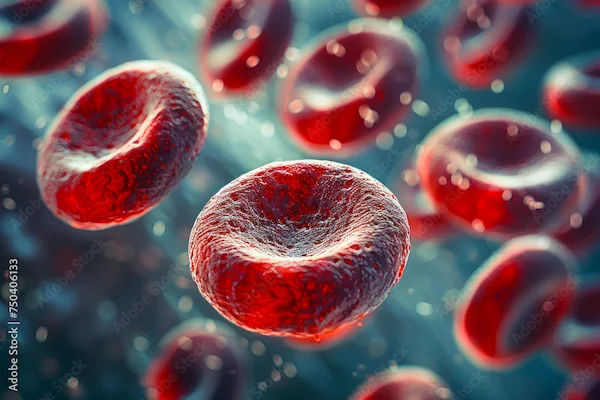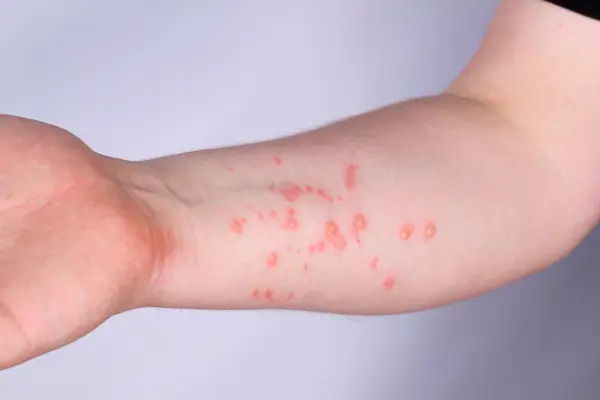Monkeypox: Treatment and Management Options
Learn about monkeypox treatment and management, including symptom relief, antiviral options, isolation guidelines, and prevention strategies to control the spread of the infection.

Written by Dr. Dhankecha Mayank Dineshbhai
Reviewed by Dr. Mohammed Kamran MBBS, FIDM
Last updated on 29th Jul, 2025

Introduction
Monkeypox is a rare viral disease that has recently gained attention due to outbreaks in various parts of the world. While it is usually not life-threatening, it can cause discomfort and complications, especially in people with weakened immune systems. If you or someone you know has been diagnosed with monkeypox, understanding the available treatment and management options can help in recovery and prevent further spread.
Understanding Monkeypox
Monkeypox is caused by the monkeypox virus, which belongs to the same family as the smallpox virus. It spreads through close contact with an infected person or animal, contaminated objects, or respiratory droplets. Symptoms typically appear within 5 to 21 days after exposure and may include:
Fever
Headache
Muscle aches
Swollen lymph nodes
Fatigue
A rash that turns into fluid-filled blisters before scabbing over
Most people recover within 2 to 4 weeks, but proper care is essential to manage symptoms and prevent complications.
Treatment Options for Monkeypox
Currently, there is no specific cure for monkeypox, but treatments focus on relieving symptoms and preventing secondary infections. Here are some common approaches:
1. Antiviral Medications
In severe cases or for high-risk individuals (such as those with weakened immune systems), doctors may prescribe antiviral drugs like:
Tecovirimat (TPOXX): Approved for smallpox and monkeypox, it helps reduce the severity and duration of symptoms.
Cidofovir or Brincidofovir: These may be used in rare cases under medical supervision.
These medications are typically reserved for severe infections and must be taken under a doctor’s guidance.
Consult Top Specialists for Personalised Tips
2. Pain and Fever Management
Over-the-counter pain relievers like acetaminophen (paracetamol) or ibuprofen can help reduce fever, body aches, and discomfort. Avoid aspirin in children due to the risk of Reye’s syndrome.
3. Skin Care for the Rash
The monkeypox rash can be itchy and painful. To manage it:
Keep the skin clean and dry.
Use calamine lotion or mild antihistamines to reduce itching.
Avoid scratching to prevent bacterial infections.
Cover lesions with bandages to minimise spreading the virus.
4. Hydration and Rest
Since fever and fatigue are common, staying hydrated and getting plenty of rest helps the body fight the infection.
5. Preventing Secondary Infections
If blisters become infected, doctors may prescribe antibiotics. Always follow medical advice before using any medications.
Self-Care and Home Management
Most mild cases of monkeypox can be managed at home with proper care:
Isolate Yourself: Stay in a separate room, avoid close contact with others, and wear a mask if around people to prevent spreading the virus.
Disinfect Surfaces: Clean frequently touched objects with disinfectants to reduce contamination.
Wear Loose Clothing: This prevents irritation of the rash.
Use Separate Utensils and Towels: Avoid sharing personal items to protect others.
When to Seek Medical Help?
While most cases resolve on their own, contact a doctor if you experience:
Difficulty breathing
Severe pain or swelling
Signs of a secondary infection (pus, increased redness)
High fever that doesn’t improve
Worsening rash
Prevention Tips
The best way to avoid monkeypox is through preventive measures:
Avoid close contact with infected individuals or animals.
Practice good hygiene: Wash hands frequently with soap and water.
Use protective gear (gloves, masks) if caring for someone with monkeypox.
Get vaccinated if recommended: Smallpox vaccines (like JYNNEOS) may offer some protection.
Conclusion
Monkeypox can be uncomfortable, but with proper care, most people recover fully. If you suspect you have monkeypox, consult a healthcare provider for guidance. Early diagnosis and supportive care can make a big difference in your recovery.
If you need medical advice or wish to book a consultation, you can schedule an appointment with Apollo24|7 for expert care and support. Stay informed, stay safe!
Would you like to speak to a doctor about monkeypox symptoms or treatment?
Consult Top Specialists
Consult Top Specialists for Personalised Tips

Dr. Liritha C
General Physician/ Internal Medicine Specialist
5 Years • MBBS, MD (GENERAL MEDICINE)
Hyderabad
Apollo 24|7 Clinic, Hyderabad

Dr. Lakshmi Sanjitha Kakani
General Physician/ Internal Medicine Specialist
6 Years • MBBS, MD (General Medicine)
Visakhapatnam
Apollo 24|7 Clinic - Andhra Pradesh, Visakhapatnam

Dr. J T Hema Pratima
General Practitioner
9 Years • MBBS
Chennai
Apollo 24|7 Clinic - Tamilnadu, Chennai
(250+ Patients)

Dr. Jawwad Mohammed Kaleem
General Practitioner
4 Years • MBBS
Hyderabad
Apollo 24|7 Clinic, Hyderabad

Dr. Mohammed Kamran
General Practitioner
5 Years • MBBS, FIDM
Nashik
Apollo 24|7 Clinic - Maharashtra, Nashik
Consult Top Specialists

Dr. Liritha C
General Physician/ Internal Medicine Specialist
5 Years • MBBS, MD (GENERAL MEDICINE)
Hyderabad
Apollo 24|7 Clinic, Hyderabad

Dr. Lakshmi Sanjitha Kakani
General Physician/ Internal Medicine Specialist
6 Years • MBBS, MD (General Medicine)
Visakhapatnam
Apollo 24|7 Clinic - Andhra Pradesh, Visakhapatnam

Dr. J T Hema Pratima
General Practitioner
9 Years • MBBS
Chennai
Apollo 24|7 Clinic - Tamilnadu, Chennai
(250+ Patients)

Dr. Jawwad Mohammed Kaleem
General Practitioner
4 Years • MBBS
Hyderabad
Apollo 24|7 Clinic, Hyderabad

Dr. Mohammed Kamran
General Practitioner
5 Years • MBBS, FIDM
Nashik
Apollo 24|7 Clinic - Maharashtra, Nashik




